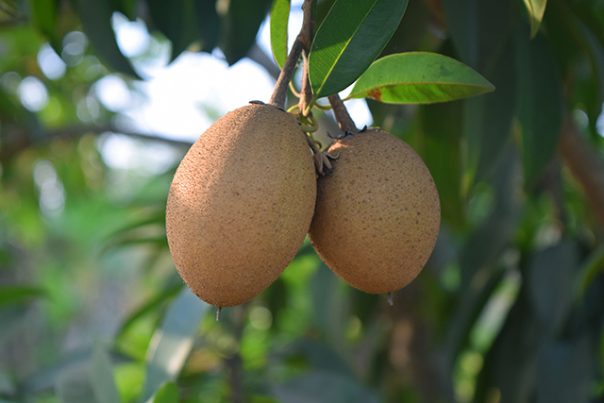CIKU

Scientific name : Manika zapota
Malay name: Ciku
Facts:
• It high-calorie fruit with low fat and no cholesterol content
• It grew in tropical area and semi-tropical area
• It propagates by seed and grafting
• The fruit is brown in colour if it is mature
Pharmacological actions:
1. Antibacterial
The root is reported against Staphylococcus aureus and Escherichia coli. The bark and leaves are against Bacillus subtilis, Bacillus megaterium, Bacillus cereus, Sarcina lutea, Escheriacjia col, Salmonella typhi, Shigella sonnei and Shigella shiga. The presence of tannins, carboxylic acid, glycosides, alkaloids and saponins exhibit antimicrobial activity.
2. Antifungal
The presence of terpenoids, glycosides, flavonoids in stem bark is against Aspergillus flavus, fusarium, and Vasianfactum.
3. Anti-inflammatory and antipyretic activity
Inhibition of biosynthesis of prostaglandins by inhibition cyclooxygenase cause Anti-inflammatory and antipyretic activity
4. Analgesic activity
Chemical constituents which are alkaloids, polyphenols and flavonoids cause potent analgetic activity.
5. Antidiarrhoeal
The presence of flavonoids and saponins that result to increase of reabsorption of electrolytes and water in the gastrointestinal tract and inhibition of prostaglandin biosynthesis.
6. Improve vision
The rich of vitamin A can cause the formation of visual sensory cell that improve eyesight.
Side effects
1. Overconsumption can cause digestive tract
2. Irritation and inflammation of throat causing breathing problems due to the assumption of raw fruits.
3. Itch sensation in mouth due to the presence of tannin (astringent)
4. Abdominal pain and vomiting because the seeds are hard and hooked.


Comments
Post a Comment